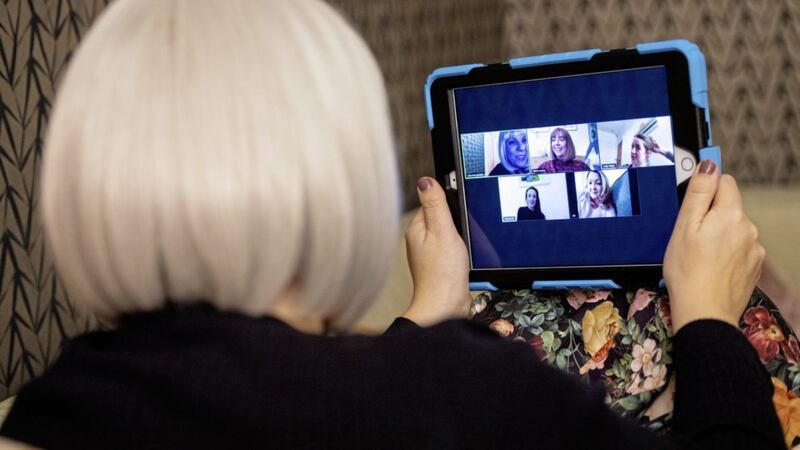HOW many times in recent days and weeks have you heard someone say: ‘when things get back to normal?’ And sometimes it's quickly followed with a postscript: ‘if they ever do.’
You can sense now in general conversations among friends, work colleagues, and within families, there is a yearning for a break from the lockdown restrictions, and that is wholly understandable.
But what will ‘normal’ look like post Covid-19? There are some lessons of lockdown life which will outlast the lockdown itself. I suspect that most people, myself included, that until March thought Zoom was a 1980s one hit wonder for Fat Larry’s Band (great song by the way…).
Now Zoom, or the various alternatives which do the same job, are fully integrated into our way of working life. My own team has a Zoom catch up every Monday morning and that has replaced the weekly boardroom get together as we plan the week ahead and look back to the week just gone. Logging onto to a an online conference call is the new normal and discussing, debating and agreeing on issues online has the exact same outcome as doing so in person.
While we have been as busy as ever, working from home does allow more flexibility in taking advantage of a break in the schedule to head to the local park, spend time with our families, and take in the sunshine. I admit that while I have found lockdown to be a struggle especially in recent weeks, it would have a lot worse in rain and wind. From now on I will always order a dose of sunshine to accompany a lockdown.
Some post Covid changes will be forced on us for the benefit of wider society. Social distancing for example is likely to be here for the very long term. That will mean a shake up in hospitality services and in simple acts like shopping and taking part in what were previously mass gathering events which we took for granted. It may also put a question mark over certain events taking place at all in the absence of a vaccine. The last fortnight in Northern Ireland would have seen the Belfast marathon, the Balmoral Show, the GAA Championship and the North West 200 all taking place. Who knows what impact social distancing will have on those events in 2021 and beyond?
Other changes may be voluntarily embraced, or legislated for. It surely cannot make any sense for the majority of the working population to all head into the centre of our towns and cities, at the same time, to work approximately the same number of hours, before all making the return journey, at the same time, clogging up our roads and sucking energy out of people.
Lockdown has taught us that we can be effective and efficient using technology to have our meetings and using home internet connections where they are strong enough, to get on with our jobs. Now I definitely miss the company of workmates and clients, and the face to face contact that often facilitates a new idea or a helping hand when looking at a problem and of course I miss the craic too. So when we can do it safely, I will return to work, but I will definitely spend more days getting my business done from home.
The coronavirus crisis also gives society an opportunity to look at how we shape our towns and cities. In cities all over the world commuters who typically used public transport will face a challenge in a social distancing era. Bikes lanes have already popped up in Berlin, New York, Brussels and closer to home in Dublin. Some are described as temporary but we know how that usually works, right?
In our own place, Infrastructure Minister Nichola Mallon has been quick to seize the initiative and last week saw the pedestrianisation of Hill Street and Gordon Street in the Cathedral Quarter. This is a brilliant move and one which really is overdue, and will have a transformative effect in that part of Belfast.
The minister has also pledged to widen pavements to accommodate pedestrians who will need to maintain a two metre distance, and to create extra bike lanes. Call them temporary if you need to Nichola, but hopefully they are here to stay as well.
Before Covid-19 locked us down and commanded the spotlight, attitudes towards the climate crisis were definitely changing, globally and I would say locally as well. Out of crisis can come opportunity and as we shape a post virus society the climate can benefit too. There is no point taking pleasure in the more noticeable birdsong, in the clear skies and safer roads, if we simply embrace the return of all our old ways as quickly as we can.
The measures being taken now can help to forge a new Belfast. Thirty years ago Amsterdam was a clogged up city full of cars and exhaust fumes. Now we all know how the bike is predominant, and by 2030 they will have banned all gas and diesel vehicles.
In Birmingham, Oslo, Paris and dozens of other cities authorities are proactively reducing car usage and promoting pedestrianisation and cycling.
We have been slow to get started but that should not blunt our determination to make the right changes in this new context.
:: Brendan Mulgrew is managing partner at MW Advocate (www.mwadvocate.com). Twitter: @brendanbelfast








